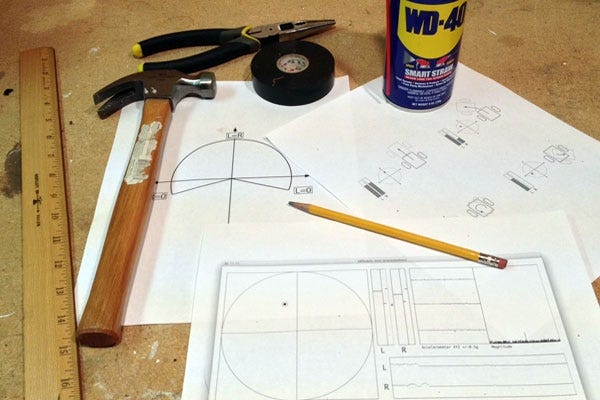German Carpenter Develops 'Sperm Switch' as Vasectomy Alternative
January 12, 2016
His young company known as Bimek SLV is seeking to commercialize a reversible alternative to vasectomies.
Brian Buntz

A German carpenter named Clemens Bimek has developed a vasectomy valve that he has tested on himself--another eyebrow-raising example of an amateur inventor who dared to take on a tricky medical device problem.
Some urologists think the technology could be a medical revolution, while others are skeptical, according to Der Spiegel.
Bimek's story bears a certain similarity to the 2013 tale of the Argentine mechanic who drew inspiration from a Youtube video a method of extracting a cork stuck into a bottle without breaking it open. This ultimately inspired the mechanic, Jorge Odón, to develop a device to help with obstructed labor. The technology won the support of Becton Dickinson, which is working on commercializing the device.
In Bimek's case, he drew his inspiration from a television program. After seeing a segment on vasectomies in a documentary in the late 1990s, he wondered why it was necessary to permanently sever the vas deferens? He asked: Wouldn't it be possible to insert a valve in the vas deferens that could be switched on and off? After all, a significant number of men who obtain vasectomies end up regretting their decision to do so, and there is a sizable business dedicated to vasectomy reversal.
From a robohand to a centrifuge for use in the developing world, examples abound when it comes to what do-it-yourself medical device designers are able to accomplish, as we explain in our feature titled 10 Clever DIY Medical Devices. |
Bimek became obsessed with his idea, thinking about it on the way to and from work, and decided to stop by the Berlin patent office to see if anyone had filed a patent for a vasectomy valve. No one had.
After discovering that, he decided to create vasectomy valves with the ability to toggle off and on in a manner similar to light switches.
After poring through medical and technical literature to create a rough plan for the device, Bimek reached out to local medical device companies for advice on engineering the valves.
He also sought help from urologists, and reported that many didn't take him seriously. "But there were a few that encouraged me to keep on tinkering and who supported me with their expertise," he told Der Spiegel.
Ultimately, the more Bimek researched, the more encouraged he became to pursue the idea. He filed a patent for the idea that was approved in 2000. Six years later, he built his first prototype and ultimately founded a company bearing his name. In 2009, he became the first person to have the device implanted.
The manufacturer, Bimek SLV, reports that the device can be implanted in close to 30 minutes--similar to a vasectomy. When closed, the man is theoretically unable to conceive. But if he later wants a child, he can simply flip a switch on the device that can be pressed through the skin.
Bimek thinks the device could provide mean with a functionally similar option of the contraceptive pill. While the pill remains popular, there has been growing concern in recent years about the role that hormone-based contraception has in introducing estrogenic pollutants to waterways, where it can harm wildlife.
It remains to be seen if Bimek will find success as the efficacy of the device is uncertain. Another hurdle could be the price tag of the procedure, which is expected to be in the vicinity of 3000 Euros-roughly $3250, which is considerably more than a standard vasectomy.
At present, the only person who has tested the technology is the founder of the company, Bimek himself, who had to have four operations to have the devices installed correctly--which are roughly the size of a gummy bear.
Bimek's urologist Hartwig Bauer is convinced that the device is revolutionary. "A third of patients with such an intervention eventually want a vasectomy reversal. But that isn't always effective," he said.
Der Spiegel quotes other urologists who are skeptical about the PEEK Optima material used in the device, stating that the body might eventually reject it.
PEEK Optima, however, has found growing use in implants in recent years.
Another urologist quoted in the article, Wolfgang Bühmann, says that the technology could eventually lead to scar tissue that blocks the vas deferens, eventually leading to the same result as a vasectomy.
In any case, the technology will likely not hit the market anytime soon, and the valve has not been tested in any patients but the inventor. (Although, volunteers interested in testing the device have reached out to the company via its website.)
Learn more about cutting-edge medical devices at MD&M West, February 9-11 at the Anaheim Convention Center in Anaheim, CA. |
Like what you're reading? Subscribe to our daily e-newsletter.
About the Author(s)
You May Also Like



